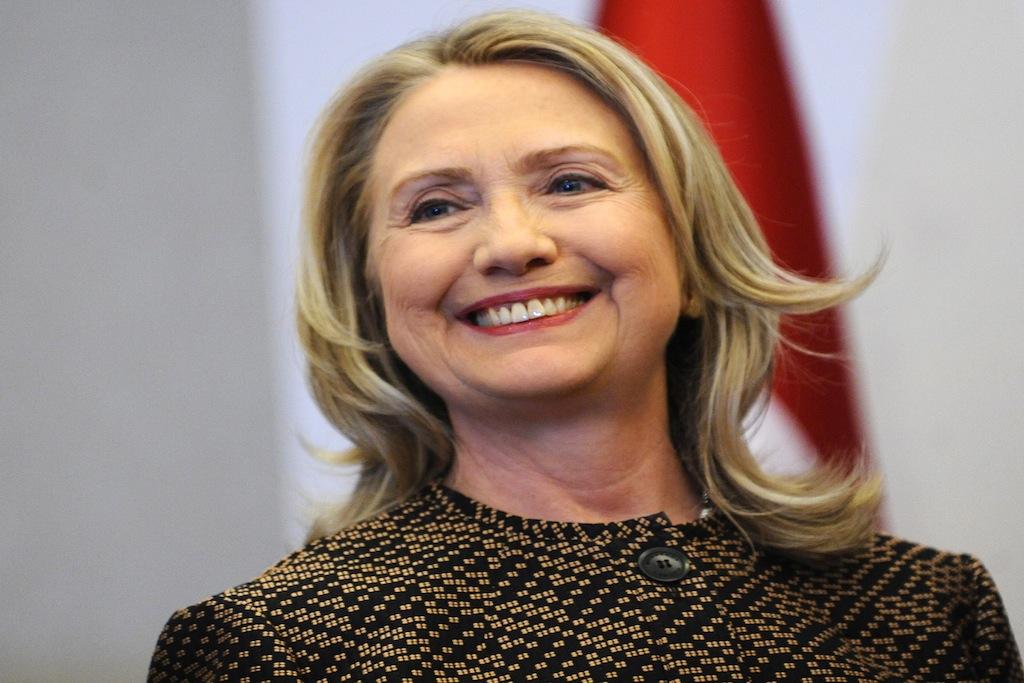Clinton encourages women to shape their countries
US Secretary of State Hillary Clinton launched the Women in Public Service Project, which aims to have half the world’s elected seats held by women in 2050. Clinton is pictured here at a press conference on June 7.
Only about 20 percent of parliamentary seats are held by women globally, but the numbers are rising every year, and young women even from historically patriarchal countries like Afghanistan and Myanmar have found their way into elected office.
But it seems getting women into office is just one battle – the second is making sure they're on strong footing when they get there.
The Women in Public Policy Project (WPSP), supported by two US Secretaries of State, Madeline Albright and Hillary Clinton, launched this week at the women's alma mater, Wellesley College. (Clinton '69, Albright, '59). The project aims to have half of the world's elected offices be held by women by 2050.
Delegates from around the world applied to be part of this inaugural class of female leaders at the 2012 Summer Institute, and 50 were chosen from 21 countries, with particular emphasis on countries undergoing "political and social transformations."
"The 50 delegates are among the best and brightest rising political talents from countries in which women's voices are desperately needed in seats of power," said Albright in a release. "The Women in Public Service Institute will give these women the tools they need to amplify their voices, build networks, and bring about positive change—not only for women, but for the world."
The two-week summer session will include lectures, meetings and seminars, but will also focus on hands-on learning techniques where the women will work together to form mock presentations, put together press conferences, write legislation and fight for it, and discuss ideas for overcoming gender bias.
Many of the delegates are from the Middle East and North Africa. They're well-educated activists and many participated in Arab Spring protests and worked for non-profits before recently heading into the public sector.
Ikram Ben Said, a 31-year-old woman from Tunisia, runs an NGO called Voices of Women (Voix des Femmes).
"Voix de femmes is a group of men and women, with different backgrounds, but whose joint work and aspirations aim to the same goal: to allow Tunisian women, whatever their origins or social group, to make their voices heard and be an active part of a society they legitimately belong to," says Ben Said's bio at WPSP.
Another participant is one of Myanmar's 6 female MPs, out of 123 parliamentarians. She has numerous degrees and is dedicated to pushing reform in her country. According to her bio, "her efforts are dedicated to make the government both accountable and transparent by highlighting human rights violations by local authorities such as police and courts. She continues her fight to reform Burma by highlighting subordinate positions of women in the society and making the government accountable for their actions against women."
Clinton's remarks at the June 11 opening of the summer session included some of her now-familiar rhetoric on women's rights.
“If you’re trying to solve a problem, whether it is fighting corruption or strengthening the rule of law or sparking economic growth, you are more likely to succeed if you widen the circle to include a broader range of expertise, experience, and ideas. So as we work to solve our problems, we need more women at the table and in the halls of parliament and government ministries where these debates are occurring," she said.
WPSP will host its next session in Paris, France, in partnership with Smith College. The topic will be public service and global health and the spotlight will be on Francophone countries.
Our coverage reaches millions each week, but only a small fraction of listeners contribute to sustain our program. We still need 224 more people to donate $100 or $10/monthly to unlock our $67,000 match. Will you help us get there today?
